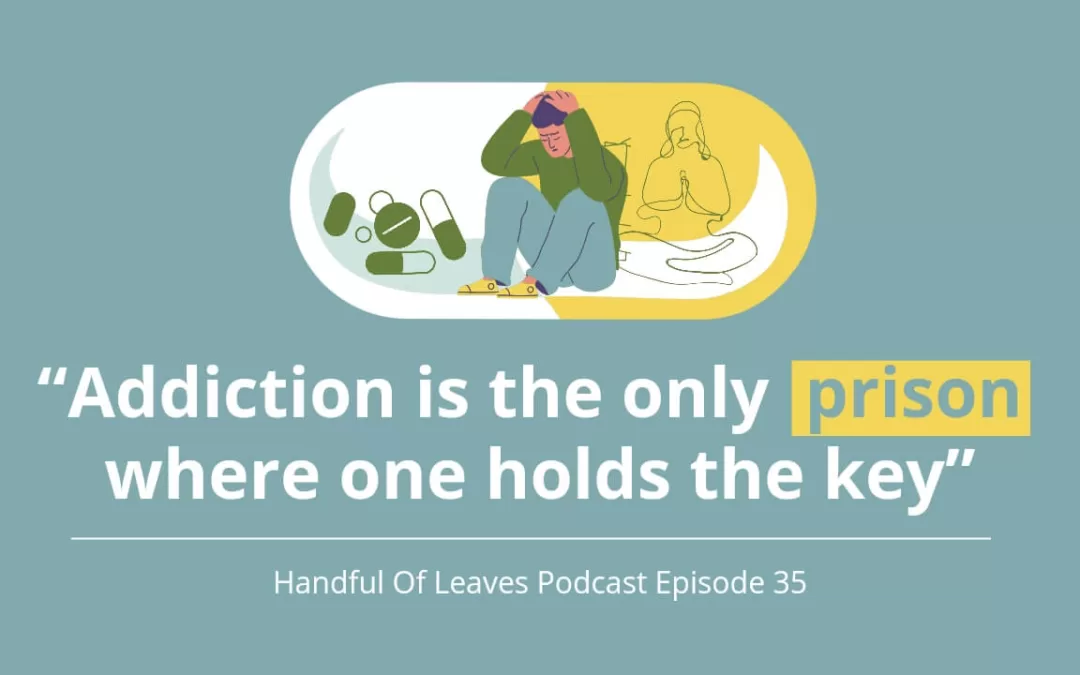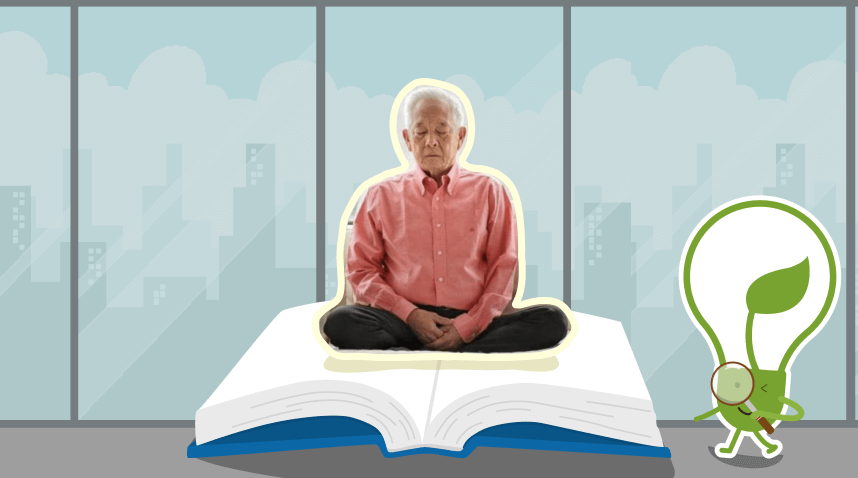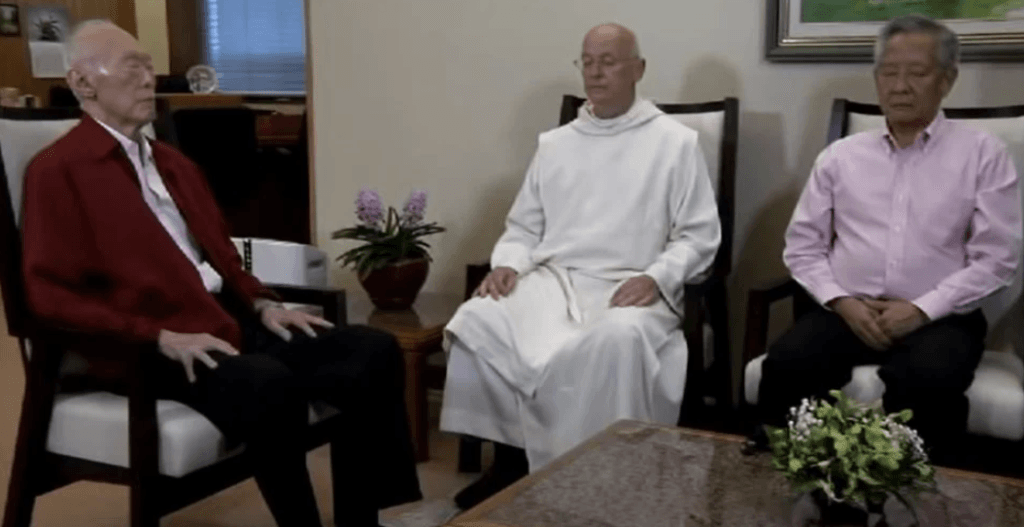
Dhamma & Digital Detox: How a one-day retreat made me rethink my relationship with media
TLDR: Always scrolling whenever there is nothing to do? Doing a weekly one-day digital fast from one’s devices, and employing the methods of mindful living recommended by Zen Buddhist monk Thich Nhat Hanh may help in combating a digital addiction.
In the bustling city of Singapore, a one-day meditation retreat became the turning point in my mental health journey.
This retreat was an escape from the city’s chaos. It included guided meditation, moments of introspection, and times of quiet. During this, my racing thoughts began to calm down.
The retreat didn’t provide an instant fix, but it jump-started a positive change. I started to incorporate mindfulness into my daily life and also started a rewarding digital detox journey.
This one-day retreat unveiled the path to resetting my mental health. It taught me that, even amidst the chaos of life, there’s room for tranquillity. The journey continues, with mental detox as my guiding light towards a healthier and happier mind.
A quiet hall
It was a lovely morning on 22 July 2023 when eighty intrepid youths gathered at the Hall of Medicine Buddha on the sprawling grounds of Kong Meng San Phor Kark See Monastery.
Organised by the Singapore Buddhist Mission, we assembled for a one-day retreat led by Venerable Damcho of Sravasti Abbey.
Titled “Shoulda, Coulda, Woulda: Living a Life with No Regrets”, there was an air of anticipation as we sat patiently on the cushions provided, waiting for the morning session to begin.
Venerable Damcho led us in an opening puja, and then a morning meditation, ending with an intention for the day.
She then expounded on the topic of the day, which plagues many youths today – FOMO, or the fear of missing out.
A light bulb went off in my mind
Something she said caught my attention, and I paraphrase, “Isn’t it rather odd that we spend so much time ‘catching up’ with our friends by obsessively scrolling on Facebook, Instagram, or Tik Tok; when we could very well just ask them out for a cup of tea instead?”
During the question and answer session, I asked, “As a queer person of faith, and for many others who do not fit into the neat little boxes society tells us to conform to, I seek solace in online spaces to find ‘my tribe’ as it were, before I found queer affirming Buddhist communities like Rainbodhi Singapore…
… In Singapore, as an educator who has journeyed with students who have been diagnosed and are seeking treatment for digital addiction, I think that scrolling on Instagram is one way people deal with chronic loneliness. I think that there are some benefits to this…
… May I also ask, what would be some of your suggestions for encouraging people to ask their friends out for a cup of tea if they suffer from anxiety issues?”
Her answer was most compassionate. She acknowledged that certain online spaces were places of refuge for those who might be unable to find community in real life.
But encouraged us to still endeavour to interact with our friends in real life.
Having reflected upon the talk in the past 2 months, I have some reflections.
Putting it bluntly, I think we suffer from a delusion when we doom-scroll on our platform of choice on social media, whether that be Instagram, Facebook, Twitter, TikTok, or others.
Like the concept of moha in Buddhism, which is Pali for “illusion” or “delusion”, this, to me, is one of the 3 common unskillful roots, that lead to craving, together with greed and aversion.
To me, obsessive scrolling on social media, out of the ‘five poisons’, is a toxic cocktail made up of both ignorance and attachment. The other three are aversion, pride, and envy.
You might be surprised to note that I don’t include envy in my consideration. You might differ from me, but to me, the main reason why I scroll Instagram to while away some time while waiting for the elevator to arrive is because I am ignorant that there are better things to do with my time.
I am also simultaneously attached to wanting to know what interesting things my friends are up to, the concept of FOMO that Venerable Damcho was targeting in her talk.
What I did after her talk
There were 3 things I implemented after her talk that have been helpful for me to combat this FOMO problem and the endless digital distraction that compels us each day to check our phones way too many times in a day.
I am not yet an expert in battling digital addiction*, but I thought it might be useful to share what’s helped me.
(*Note: I see digital addiction as being on a spectrum. While I might not get physically violent if my digital devices are removed from me, scrolling compulsively for 2 hours every night before I sleep instead of reading or chanting is to me, most certainly a problem, even if it might not qualify as being pathological in nature. Please consult a professional if you suffer from addictions of any sort, the following are but some humble suggestions that have worked for me.)
1. Digital Detox
I implemented a day where I would be offline for 24 hours, on an off day where I don’t have to work, and I would take care to inform the friends and family I text most often.
(This is crucial because I once caused them a lot of worry just going dark without telling them, for I am the consummate digital native, replying to messages at a ridiculously rapid rate.)
On the day of my digital fast, I’d intentionally put my phone, laptop and tablet at home, and either go for a morning walk at the nearby park or head to the beach to sink my feet into the sand.
Then I’d mindfully eat my breakfast of kaya toast and coffee, more mindful than usual instead of Instagramming it and pairing it with a witty caption for my followers.
Sometimes I’d head to my favourite temple, Bright Hill Temple, and pay my respects to my favourite bodhisattva, Guan Yin, then meditate in the Hall of No Form for a bit, before partaking in a delicious vegetarian lunch at their canteen.
Then I’d spend some time journalling, in pen and paper (crazy, yes I know, some of us haven’t touched a pen since graduation – at least according to a friend of mine), and write down some thoughts and reflections I’ve had for the week.
Finally, I’d spend the rest of the afternoon crocheting, chanting a meditative mantra silently in my mind with each stitch.
In the evening, I’d cook a simple dinner mindfully, eat, and then wash my crockery mindfully too, in the fashion of the Zen monks I’d once read about.
Then I’d wind down by doing some nighttime chanting to Guan Yin with my mala (prayer beads), then finally curl up to a good book to quieten my mind and body before falling asleep.
This is in contrast to staring at my phone, indulging in my usual bedtime procrastination of scrolling for 2 hours straight, and catching up with what my friends are doing, before collapsing in exhaustion past midnight.
I can see why retreats are useful, but since I cannot currently afford to go overseas to spend 7 days in silence regularly, I think being offline, away from the constant overwhelming digital noise, 1 day a week can be super helpful too.
2. Mindfully doing everything (as much as possible)
I have been a great fan of Thich Nhat Hanh’s methods, ever since I was recommended his books as a newcomer to Buddhism 5 years ago.
In his little series of books that I love, with them intentionally titled, “How to Sit”, “How to Walk”, “How to See”, and so on, I have learnt that we can be mindful of the little things.
As I began to eat more mindfully during mealtimes, setting aside my phone (after snapping a square photo, I know, forgive me, for I am still learning to be mindful), I began to better experience the flavours, the texture, and even noticing the temperature of the food I as I chew.
I felt grateful with each bite, for the many causes and conditions that brought the bowl of noodle soup to me, with the various ingredients sourced and harvested from all across the world. That is not to be taken for granted. This also reminds me of the concept that Thich Nhat Hanh likes to call “Interbeing” more commonly known as interdependence.
This means that no man exists as an island unto himself and that we all rely on one another, whether we realise it or not. And I began to see the universe in my little bowl of noodles. It is incredible indeed, what being mindful can do to one’s experience of a meal.
Then, while walking, even to the bus stop from my house, I noticed the feeling of my feet as I took each step. I see the trees, the breeze gently caressing each leaf and cradling each branch, the accompanying chirping of the birds, and the gentle early morning sunshine on my face, and I am grateful to be alive.
I must admit, this does not happen all the time, I am sometimes still engrossed in my phone, replying to an urgent text from a client or a friend, checking for the day’s movie timings or seeing what time the bus is arriving from my app.
But when I do, and I try to when I remember, the world slows down and everything becomes that much more meaningful as the digital world fades into the background that much more.
3. Digital decluttering the Marie Kondo way
Recently, I began to do a little digital decluttering.
I cleared my photo album of photos that I no longer needed, screenshots of receipts after meals I send to friends to split the bill, or posters to events that have long passed.
Then, I did some purging.
Often on social media, digital friends can over time become unwholesome to one’s practice if their views aren’t aligned with mine.
On Twitter, I unfollowed or muted some friends who posted things that were too violent, whether in imagery or speech, too sexual, or too angry.
My feed then magically became a more wholesome place to be in, where I converse with friends on important topics of the day, even as we partake in one another’s lives across continents, making plans to one day visit.
I think this can be sometimes controversial, for some might consider this a form of locking oneself in an echo chamber.
Well, my response to that is, that I’d rather be in a wholesome echo chamber than be in a town square full of angry and hateful people, bombarding my eyes with their violent speech and imagery, thank you very much.
My feed is mine to curate, and it’s like reading books or watching movies – we don’t read every single book or watch every single movie that comes into the market. Why? Each of us has a unique taste, cultivated over time, informed by our religious beliefs and practices. Similarly, I shouldn’t subject myself to reading every tweet, Instagram picture, or TikTok video that comes my way if it isn’t aligned with my practice.
That’s being mindless instead of being mindful.
My friends often wonder why my TikTok feed is so weird – my feed is filled with parenting advice from a mom who is also a professor and counsellor, fun chemistry videos from a real-life chemist, wholesome coming-out advice from a queer couple, and Book Tok videos of new books my favourite Book Tok celebrity, Jack Edwards, has laid his hands on.
These are things I enjoy learning about, and I am glad the TikTok algorithm is rather accurate in serving up the wholesome content that I enjoy. No shade on those who dance in skimpy clothing but it’s just really not my thing. But I most actively steer away from content that is overtly angry, rude, or discriminatory, which (un)surprisingly makes up a lot of content online these days.
Even if one cannot go offline completely, plugged into the digital world as we are in the 21st century, whatever one consumes directly affects your brain. There is a famous neuroscience saying that goes, “Neurons that fire together, wire together”, meaning that the more you consume, the more your brain wants you to consume.
The more sexual imagery one consumes digitally, the more they’d want the same hit of dopamine, and a vicious cycle continues.
Like my friends in recovery, instead of going cold turkey, many replace their addiction with a healthier form of coping.
Instead of smoking, they might chew gum instead (I know, we can’t buy chewing gum in Singapore, but you get my point).
Instead of feeding one’s mind with celebrity break-up news on Instagram, one could instead read the helpful posts on the Handful of Leaves Instagram page, and listen to their podcast too (My favourite one is the sex talk the two hosts did with Venerable Damcho).
Conclusion
I still struggle with and have a mild digital addiction. However, implementing the methods of mindful living as espoused by Thich Nhat Hanh, and doing a digital fast once a week, has been tremendously helpful for me. Curating my social media feed is something I’m currently still working on, even as I work on digital decluttering, removing apps and photos that I no longer use or are helpful to my practice.
I hope this little sharing has been helpful for you and I wish you all the best of luck with your digital journey.
Be kind to yourself, be curious about why you do the things you do, and be brave enough to make changes to your life when the need arises.
Peace.
Wise Steps:
1. Choose one day a week to do a digital detox.
2. Eat mindfully with awareness and gratitude.
3. Delete old photos from your mobile phone.








